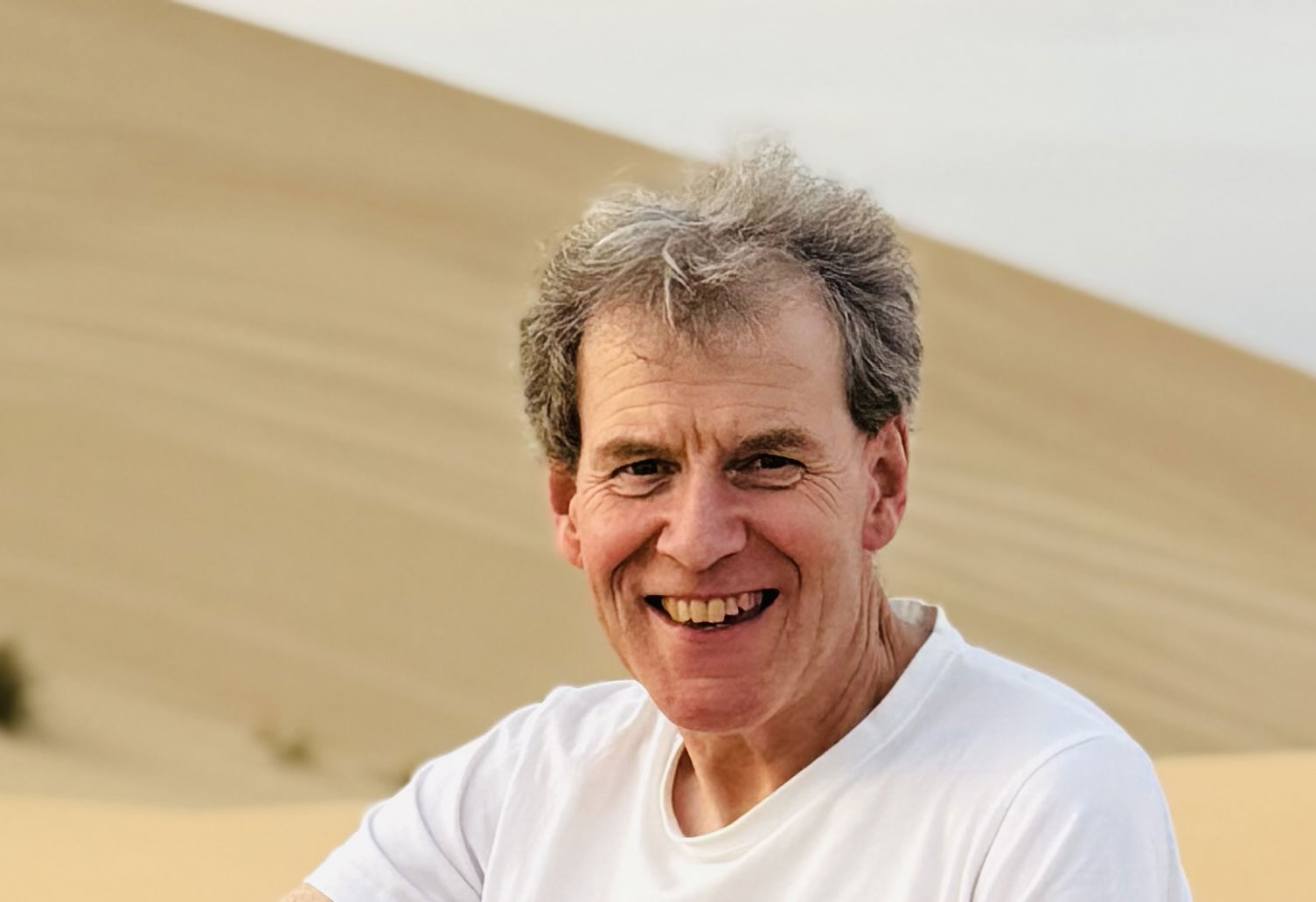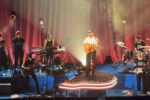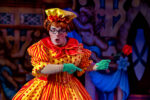An Evening With Stewart Copeland: Have I Said Too Much? – Review – St George’s Hall, Bradford

By Graham Clark, October 2025
Former drummer with The Police, Stewart Copeland, is used to performing in front of thousands of fans in stadiums and arenas around the world; tonight at Bradford’s St George’s Hall is a more intimate affair. In an audience that numbered around three hundred, Copeland presented a two-hour monologue on his career to date – a journey that saw him behind the drum kit of one of the biggest bands in the world, later becoming a film-score composer and creating his own operas with an Italian production team.
His approach was warm, witty and incisive – he would make a good after-dinner speaker, such is his skill as an engaging raconteur.
Coming from what appeared to be a privileged background – his father was a CIA agent in Beirut and even missed his son’s birth to install a dictator in Egypt – he spoke about his first band, the Black Knights. He later attended a boarding school in Somerset and developed a love of playing polo – which even included a game against a team that included the Prince of Wales, the future King.
His brother Miles set up an agency in London looking after bands such as Wishbone Ash and hippie rockers Curved Air, with Copeland later becoming the band’s drummer. Following some free studio time that Squeeze had vacated, he recorded his solo single ‘Don’t Care’ under the guise of the mysterious Klark Kent in 1978, which led to an appearance on Top of the Pops, with Sting on bass dressed as a gorilla.
“Fireworks”
Referring to Sting as ‘Stingo’ throughout the evening, he was keen to emphasise that ‘we really do love and respect each other, which is why I can take the piss’, though no mention was made of the lawsuit he and Andy Summers – the guitarist in The Police – launched recently over £1.5 million in disputed royalties.
‘Fame, fortune and glory did not change him,’ he recalled, referring to Sting. ‘He was always the Lion King.’ Their time together in The Police during the height of their fame was largely glossed over – the period most of the Bradford audience had wanted to hear about; instead, the spotlight was on their 2007 reunion and subsequent tour, which involved over four months of rehearsal at Sting’s grand mansion in Tuscany. The friction between all three members resulted in therapy being prescribed by the tour promoter. ‘I often described the band as a Prada suit made from razor blades,’ he continued.
There was no doubting that Copeland had a big ego, which clashed with Sting’s equally big one. When they were not making music, they seemed to get on fine, though as soon as they got into the recording studio or on stage, the fireworks began.
The evening ended with a rather quick Q&A session, with questions members of the audience had put – rather aptly – in a drum during the interval. Rather than being banal, they ranged from how the idea came for The Police dyeing their hair blonde (it was from appearing in an advert for chewing gum) to why Sting wanted to re-record some of their hits.
‘The conflict even continued then,’ he recalled. ‘It was what made The Police what it was.’
images: Graham Clark











